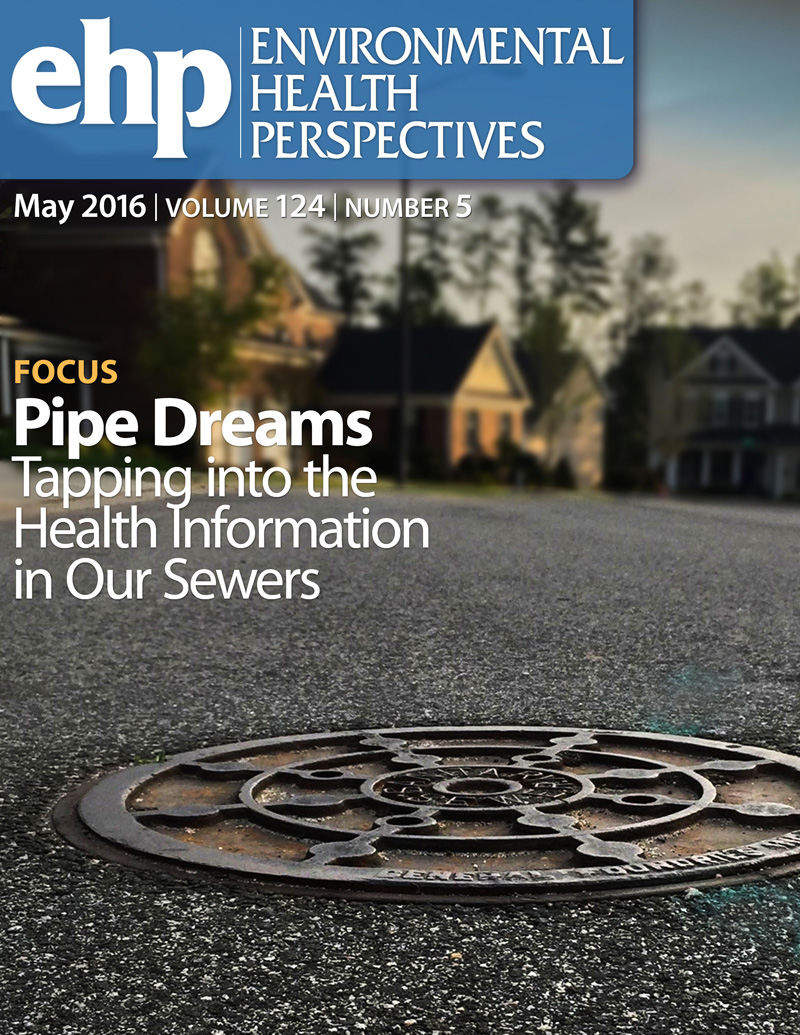Long-Term Exposure to Arsenic in Community Water Supplies and Risk of Cardiovascular Disease among Women in the California Teachers Study.
IF 10.1
1区 环境科学与生态学
Q1 ENVIRONMENTAL SCIENCES
引用次数: 0
Abstract
BACKGROUND Inorganic arsenic in drinking water (wAs) is linked to atherosclerosis and cardiovascular disease. However, risk is uncertain at lower levels present in US community water supplies (CWS), currently regulated at the federal maximum contaminant level of 10μg/L. OBJECTIVES We evaluated the relationship between long-term wAs exposure from CWS and cardiovascular disease in the California Teachers Study cohort. METHODS Using statewide health care administrative records from enrollment through follow-up (1995-2018), we identified fatal and nonfatal cases of ischemic heart disease (IHD) and cardiovascular disease (CVD). Participants' residential addresses were linked to a network of CWS boundaries and annual wAs concentrations (1990-2020). Most participants resided in areas served by a CWS (92%). Exposure was calculated as a time-varying, 10-year moving average up to a participant's event, death, or end of follow-up. Using Cox models, we estimated hazard ratios (HRs) and 95% confidence intervals (95% CIs) for the risk of IHD or CVD. We evaluated wAs exposure categorized by concentration thresholds relevant to regulation standards (<1.00, 1.00-2.99, 3.00-4.99, 5.00-9.99, ≥10μg/L) and continuously using a log2-transformation (i.e., per doubling). Models were adjusted for baseline age, neighborhood socioeconomic status, race/ethnicity, body mass index (BMI), and smoking status. We also stratified analyses by age, BMI, and smoking status. RESULTS Our analysis included 98,250 participants, 6,119 IHD cases, and 9,936 CVD cases. The HRs for IHD at concentration thresholds (reference, <1μg/L) were 1.06 (95% CI: 1.00, 1.12), 1.05 (95% CI: 0.94, 1.17), 1.20 (95% CI: 1.02, 1.41), and 1.42 (95% CI: 1.10, 1.84) for 1.00-2.99μg/L, 3.00-4.99μg/L, 5.00-9.99μg/L, and ≥10μg/L, respectively. HRs for every doubling of wAs exposure were 1.04 (95% CI: 1.02, 1.06) for IHD and 1.02 (95% CI: 1.01, 1.04) for CVD. We observed statistically stronger risk among those ≤55 vs. >55 years of age at enrollment (pinteraction=0.006 and 0.012 for IHD and CVD, respectively). DISCUSSION Long-term wAs exposure from CWS, at and below the regulatory limit, may increase cardiovascular disease risk, particularly IHD. https://doi.org/10.1289/EHP14410.加利福尼亚教师研究》中妇女长期接触社区供水中的砷与心血管疾病风险。
背景饮用水(WAs)中的无机砷与动脉粥样硬化和心血管疾病有关。方法我们利用全州范围内从注册到随访(1995-2018 年)的卫生保健管理记录,确定了缺血性心脏病 (IHD) 和心血管疾病 (CVD) 的致死和非致死病例。参与者的居住地址与 CWS 边界和年度 wAs 浓度(1990-2020 年)网络相连。大多数参与者居住在 CWS 服务的地区(92%)。暴露量以随时间变化的 10 年移动平均值计算,直至参与者发生事件、死亡或随访结束。我们使用 Cox 模型估算了罹患高血压或心血管疾病风险的危险比 (HR) 和 95% 置信区间 (95%CI)。我们按照与法规标准相关的浓度阈值对 wAs 暴露进行了评估(入组时年龄为 55 岁,IHD 和 CVD 的 pinteraction 分别为 0.006 和 0.012)。讨论长期暴露于 CWS 中的 wAs(达到或低于法规限值)可能会增加心血管疾病风险,尤其是 IHD。https://doi.org/10.1289/EHP14410。
本文章由计算机程序翻译,如有差异,请以英文原文为准。
求助全文
约1分钟内获得全文
求助全文
来源期刊

Environmental Health Perspectives
环境科学-公共卫生、环境卫生与职业卫生
CiteScore
14.40
自引率
2.90%
发文量
388
审稿时长
6 months
期刊介绍:
Environmental Health Perspectives (EHP) is a monthly peer-reviewed journal supported by the National Institute of Environmental Health Sciences, part of the National Institutes of Health under the U.S. Department of Health and Human Services. Its mission is to facilitate discussions on the connections between the environment and human health by publishing top-notch research and news. EHP ranks third in Public, Environmental, and Occupational Health, fourth in Toxicology, and fifth in Environmental Sciences.
 求助内容:
求助内容: 应助结果提醒方式:
应助结果提醒方式:


